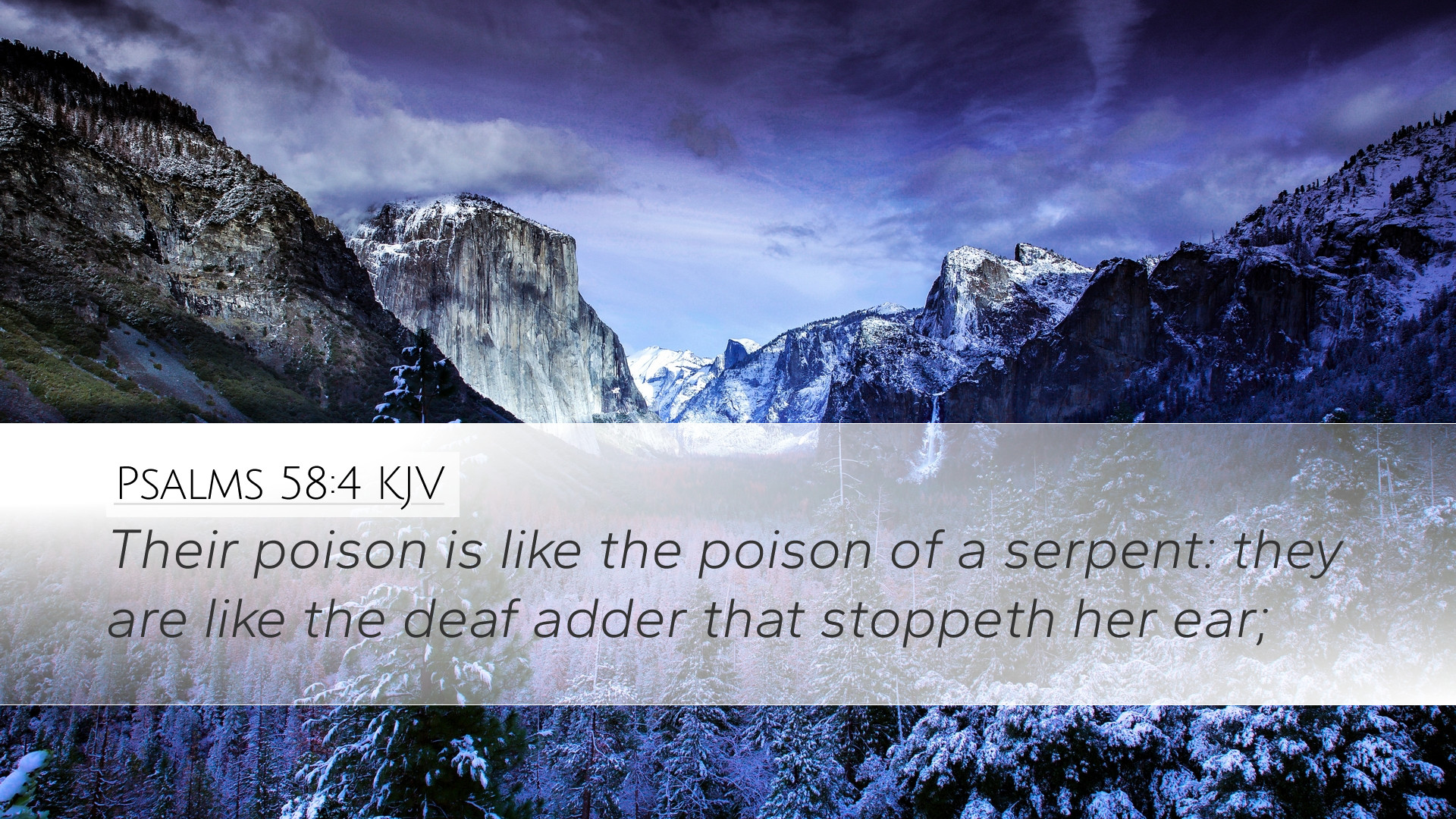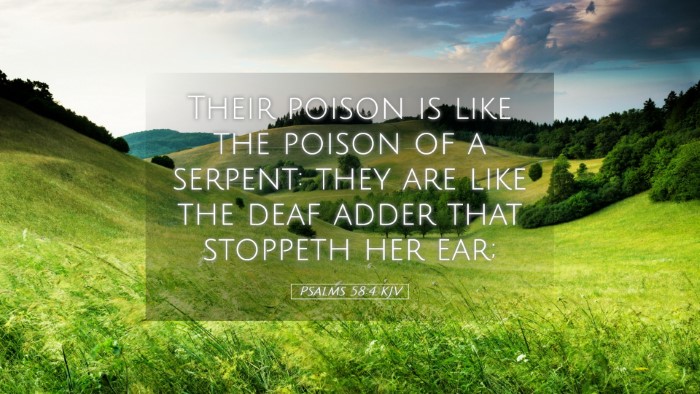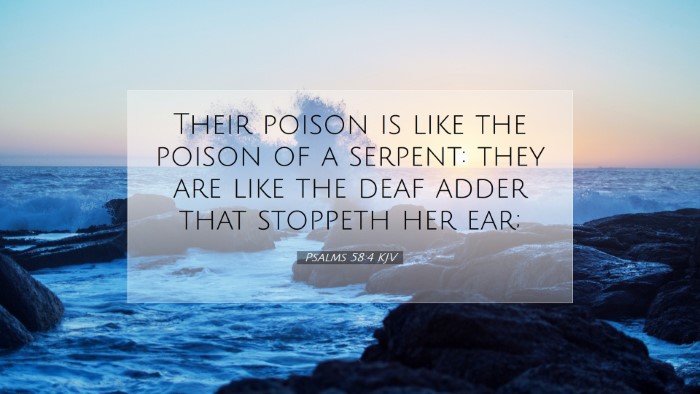Psalms 58:4 Commentary
Psalms 58:4 states: “Their poison is like the poison of a serpent; they are like the deaf adder that stoppeth her ear.” This verse imagery reflects the danger of the wicked and their refusal to heed righteous counsel or the warnings of God.
General Context
This Psalm is attributed to David and belongs to the category of imprecatory psalms, where the psalmist invokes judgment upon the wicked. The fervent tone and vivid imagery serve as a critique of those who practice injustice and engage in wickedness without remorse.
Commentary Insights
Matthew Henry's Commentary
Analysis of the Wicked: Matthew Henry emphasizes that this verse outlines the insidious nature of the wicked. Just as a serpent's poison is lethal, so are the actions and words of the evil. They can destroy lives and corrupt society. The metaphor of the deaf adder highlights their obstinacy and unwillingness to listen to reason.
Spiritual Application: Henry reminds the reader that such wickedness can arise even among those in positions of authority. He suggests that the Church must be vigilant in confronting such evil, as complacency allows it to flourish. There is also a warning for believers to remain discerning and not be swayed by the deceitful charms of wickedness.
Albert Barnes' Notes on the Bible
Visual Imagery: Barnes illustrates that the ‘deaf adder’ is a creature known for its silence; it will not respond even when charmed. This signifies those who have hardened their hearts against the truth. They consciously choose evil, just like the serpent that will not hear the sound meant to lure it. This silence is indicative of a moral state that is resistant to the truth of God's word.
Behavior of the Wicked: Barnes posits that this verse outlines a broader principle concerning sinful individuals. Their poison represents the influence they exert on those around them; like venom, their actions can have detrimental effects not just on themselves but on the entire community. This serves as a reminder for believers to guard themselves against such influences.
Adam Clarke's Commentary
Serpentine Behavior: Clarke notes the specific behaviors attributed to the wicked, comparing them to a serpent that closes its ears. He elaborates that this symbolizes a refusal to hear or be reasoned with. Within this context, the metaphor powerfully communicates both the cunning of the wicked and their inherent danger. Clarke emphasizes that the refusal to listen leads to inevitable destruction.
Moral Implications: Clarke stresses the importance of spiritual discernment concerning the influences in one’s life. He advocates for the necessity of separating oneself from individuals exhibiting this serpentine character, as their poison can infiltrate and corrupt even the most vigilant believer.
Theological Reflections
This verse invites a rigorous theological reflection on the nature of evil. It highlights that evil is not merely an abstract concept but embodied by individuals who reject God's commandments. The imagery used serves to illustrate how such individuals can become agents of harm in a community.
Understanding the Human Condition
The portrayal of the wicked in this verse speaks to the broader human condition and our tendency towards sinfulness. The deaf adder represents those who intentionally turn away from God, illustrating the profound problem of spiritual blindness. This spiritual deafness leads one not only to harm themselves but to poison those around them.
Call to Action for Believers
This commentary on Psalms 58:4 serves as a clarion call for believers and leaders within the church. It stresses the responsibility to remain vigilant against cultural and personal temptations to adopt similar characteristics as the ‘deaf adder.’
- Encouragement to Listen: Believers are encouraged to cultivate a habit of humility and willingness to hear God’s voice through His Word.
- Community Engagement: The Church must remain engaged in societal issues, standing against injustices, and being a voice for the voiceless.
- Personal Reflection: Individuals are urged to regularly examine their own hearts, ensuring that they do not adopt attributes akin to those described in the psalm.
Conclusion
Psalms 58:4, with its vivid imagery and urgent admonitions, serves as a reminder of the consequences of wickedness and the essential call for vigilance among believers. By reflecting on insights from biblical commentaries, pastors, students, theologians, and scholars can glean profound lessons on the nature of evil and the imperative to stay aligned with the truth of God's Word.


